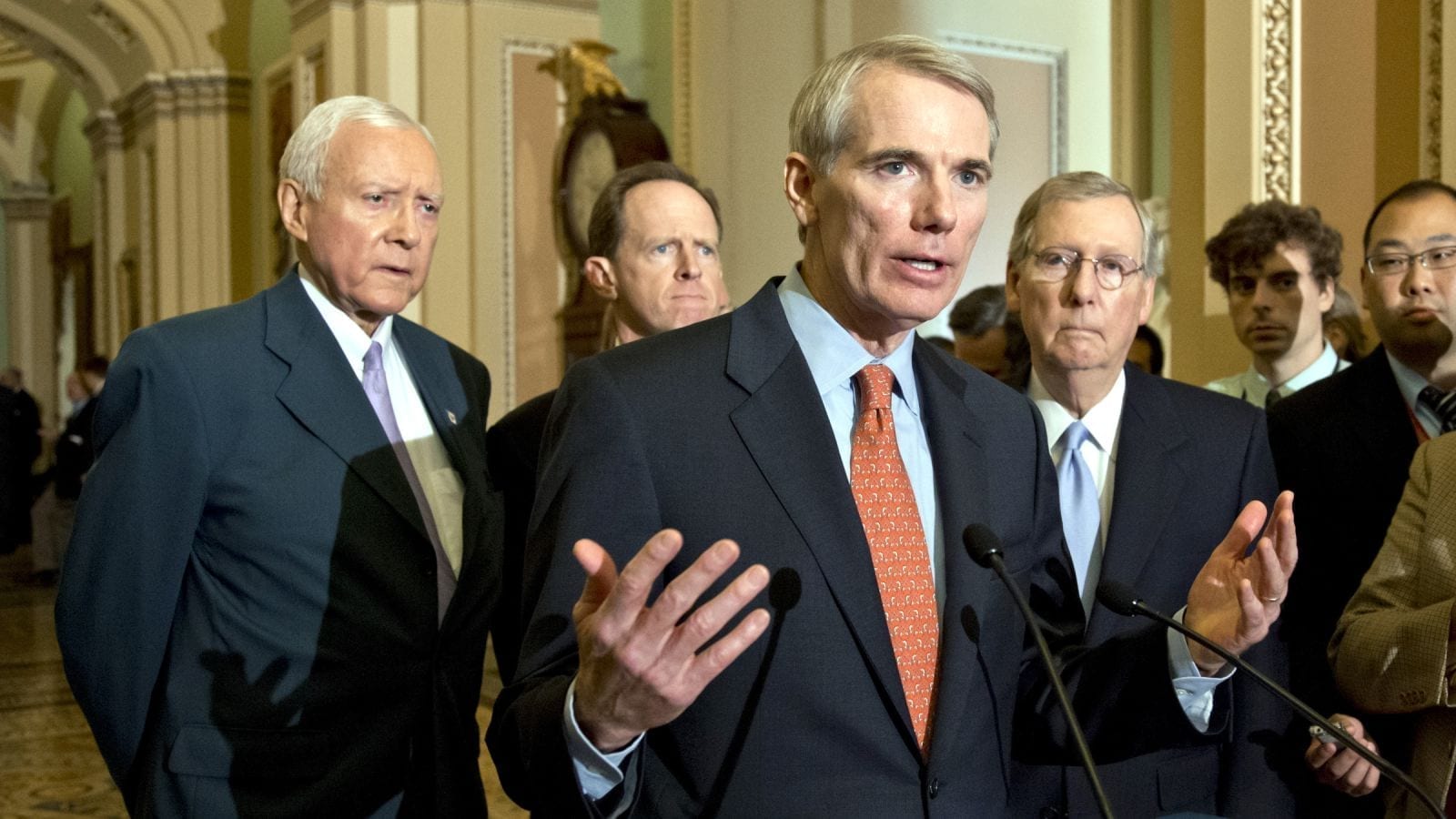Four Republican senators have voiced their opposition to a proposed Obamacare repeal and replacement, hours after details of the hushed-up bill were finally made public.
Senators Rand Paul (KY), Ron Johnson (WI), Ted Cruz (TX) and Mike Lee (UT) wrote in a joint statement they simply were “not ready to vote for this bill.”
“Currently, for a variety of reasons, we are not ready to vote for this bill, but we are open to negotiation and obtaining more information before it is brought to the floor,” they said. “There are provisions in this draft that represent an improvement to our current health care system, but it does not appear this draft will accomplish the most important promise we made to Americans: to repeal Obamacare and lower their health care costs.”
Conservatives can’t afford to lose the votes of more than a handful of senators. With a slim 52-48 majority in the Senate, the GOP has room but for two defectors.
In the case of a 50-50 split, Vice President Mike Pence would cast the determining vote.
Cruz issued an independent statement upon request to CNN’s Dana Bush, clarifying his position.
“As currently drafted, this bill does not do nearly enough to lower premiums,” he said. “That should be the central issue for Republicans – repealing Obamacare and making healthcare more affordable. Because of this, I cannot support it as currently drafted, and I do not believe it has the votes to pass the Senate.”
Senate Majority Leader Mitch McConnell, in a speech given Thursday, warned that “more Americans may get hurt if we don’t do something.”
McConnell is currently pressing for a vote by July 4th.
“We agreed on the need to free Americans from Obamacare’s mandates – so Americans are no longer forced to buy insurance they don’t need or can’t afford,” he said, speaking on the Senate floor. “We’ll repeal the employer mandate so Americans no longer see their hours or take-home pay cut because of it.”

Some legislators, like Sen. Dan Heller of Nevada, expressed “serious concerns” over the GOP proposal. Heller said he’d take a copy of the bill to review with his state’s governor, citing “serious concerns about the bill’s impacts on the Nevadans who depend on Medicaid.”
Some of the changes made in the Senate bill, versus the House’s Affordable Health Care Act, include a three-year, continued expansion of Medicaid, with a gradual program rollback beginning in 2021.
Perhaps the biggest change proposed by the Senate is the continuation of Obamacare’s income-based subsidies for healthcare purchases, which the House had hoped to replace with age-based tax credits.
Both the Senate and House plans advocate a yearlong block on Planned Parenthood funding, decreased taxes on the wealthiest Americans, and the repeal of mandated healthcare provisions for businesses which employ more than a certain number of workers.
The one major concession GOP legislators in both branches of the legislature are willing to keep over from Obamacare is allowing children to stay on their parents’ insurance policies until age 26.
Sources
Comparing the Senate health care bill to Obamacare and the House proposal
Four GOP senators say they can’t vote for current Republican health care bill


Join the conversation!